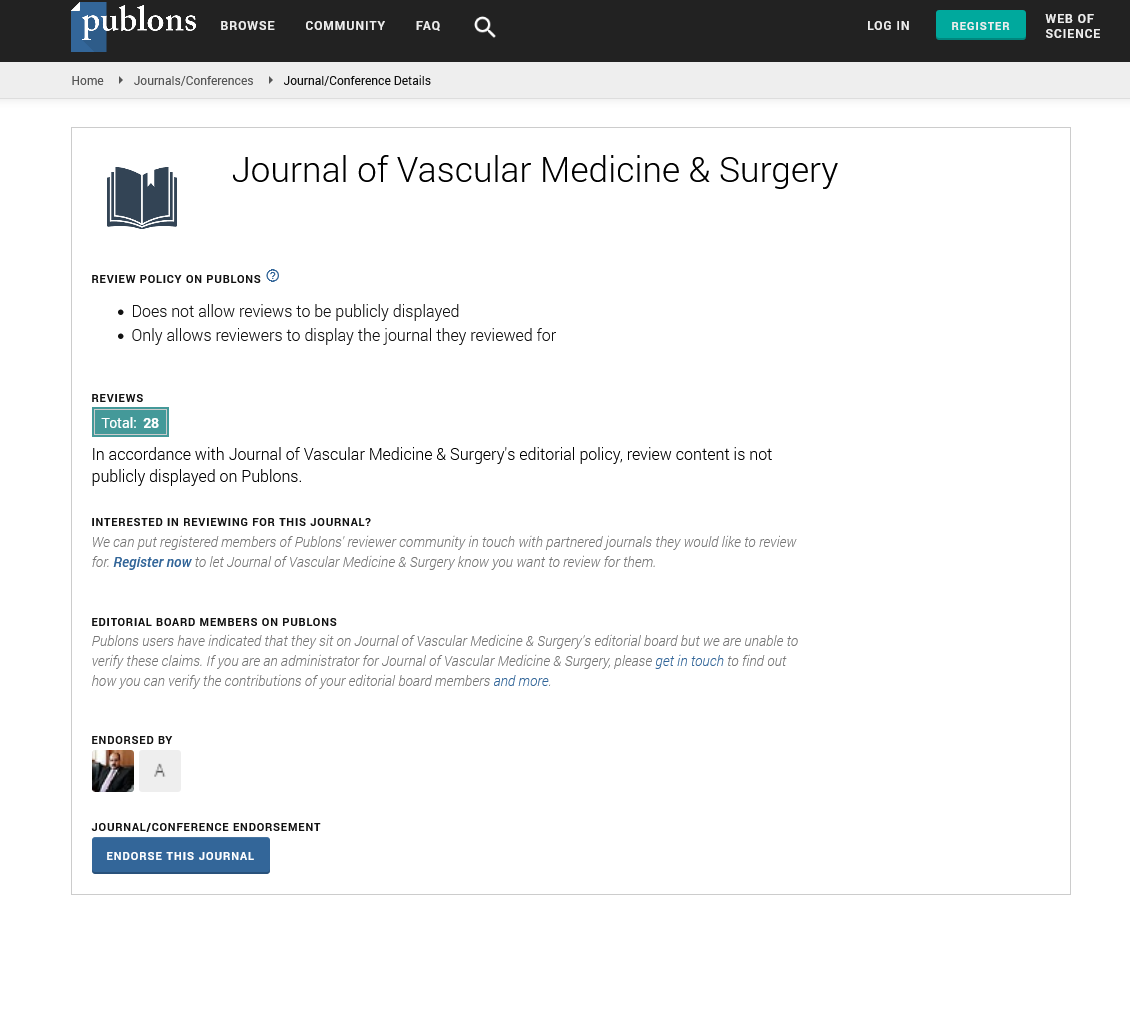Indexed In
- Open J Gate
- Academic Keys
- RefSeek
- Hamdard University
- EBSCO A-Z
- OCLC- WorldCat
- Publons
- Euro Pub
- Google Scholar
- SHERPA ROMEO
Useful Links
Share This Page
Journal Flyer

Open Access Journals
- Agri and Aquaculture
- Biochemistry
- Bioinformatics & Systems Biology
- Business & Management
- Chemistry
- Clinical Sciences
- Engineering
- Food & Nutrition
- General Science
- Genetics & Molecular Biology
- Immunology & Microbiology
- Medical Sciences
- Neuroscience & Psychology
- Nursing & Health Care
- Pharmaceutical Sciences
Abstract
Arginine Vasopressin Promotes Transient Contractile Responses through Distinct Mechanisms in Rat Aorta and Mesenteric Resistant Arteries
Weizhong Zhu*, Aihua Yang, Yifeng Zhang, Yuhang Wang, Xiaojun Wang, Hairong Bao and Jun Ren
Background: Neurohormone-regulated peripheral vascular resistance is considered one of the factors governing blood pressure. This study was designed to evaluate the effect of Arginine Vasopressin (AVP) on contraction of endothelium-intact or denuded rat aorta and mesenteric resistant arteries.
Method: The wire myograph technique was used to assess the contractility of the vascular smooth muscles in response to a high-K+, phenylephrine, AVP and inhibitors, etc. The time-course of agonist-evoked contraction was then recorded. The endothelium of the mesenteric resistance arteries and abdominal aorta were denuded by physical abrasion, as evidenced by acetylcholine-induced vasodilation dysfunction.
Results: The result revealed that: (1) AVP, but neither high K+ nor phenylephrine, evoked transient contraction of abdominal aorta and mesenteric resistance arteries; (2) Endothelial removal, V2 receptor antagonists, soluble Guanylate Cyclase (sGC) inhibitors, or Nitric Oxide (NO) synthase inhibitors reversed the transient contraction of mesenteric resistance arteries into sustained contraction, but not in aorta; (3) Pharmacological inhibition of G-Protein Coupled Receptor 2 (GPCR2) altered AVP-elicited temporal contractile response into a sustained contraction in denuded aortic endothelium; (4) The vasopressin receptor V1A blocker abolished AVP-induced contractile responses in both vessel preparations.
Conclusion: V2-mediated NO pathway in endothelium and the V1A-mediated GRK2 signaling pathways in smooth muscle are involved in AVP-induced transient contractions in rat mesenteric resistance and aortic vessels, respectively.
Published Date: 2024-11-27; Received Date: 2024-10-25

